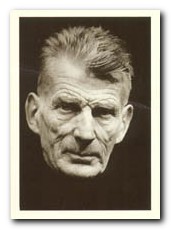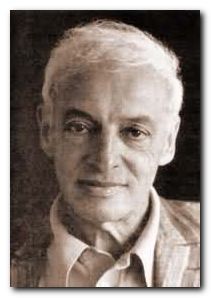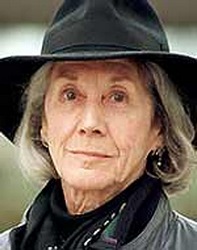tutorial, commentary, study resources, and web links
The Nobel Prize for Literature was first established in 1901. It is awarded annually to a writer who has produced ‘the most outstanding work in an ideal direction’. This might appear to be a simple formula, but it has led to a number of controversies.
The term ‘ideal’ has often been interpreted politically as meaning work of a naive and idealistic tendency. This has sometimes led to accusations that only works promoting virtuous behaviour were being recognised. It has sometimes been accused of being ‘a Nobel Peace Prize in disguise’.
The prize is awarded in October each year, along with the prizes for Chemistry, Physics, Peace, Economics, and Medicine. It is funded from the legacy of Swedish chemist and engineer Alfred Nobel, who made his fortune from the invention of dynamite. He also owned the Bofors company which manufactured armaments. The idealism of the award and the source of its financing is an irony which has not been lost on commentators ever since.
The award procedure starts with nominations that are canvassed in the early part of each year. These nominations are scrutinised by a committee, and a short list of five names is drawn up and submitted to the Swedish Academy. There is a vote, and anyone receiving more than half the votes is declared winner. The nominations are then kept secret for fifty years before being made public. The prize is awarded for a body of work, rather than for a single publication.
The prize itself consists of a gold medal, a diploma, a cash award, and an invitation to deliver a lecture at the Swedish Academy in Stockholm. The value of the award is determined by percentage returns on the investment made in Nobel’s original will, but is usually in excess of one million US dollars.
The winners
A glance through the historical list of prizewinners will quickly reveal three curious features, which have been the subject of much comment. The list reveals:
- famous writers who were not awarded the prize
- prize winners who are now completely unknown
- winners who were once famous but are now in decline

The overlooked
The prize must be awarded to a living writer, but the early years of the prize in particular are rich in what can now be seen as missed opportunities. Anton Chekhov was still alive in the first phase of the award, but was not given the prize. The same is true of Henrik Ibsen, who was a powerful influence on other writers and is still widely performed today. Leo Tolstoy did not die until 1910, and had a world wide reputation – but he was never a winner. Henry James was nominated for the prize three times but never given the award.
Joseph Conrad and Thomas Hardy both had reputations which stretched across Europe and American and were both alive until the 1920s – but neither was given the award. Virginia Woolf was publishing mature works now regarded as modern classics for the last two decades of her life until her death in 1941. The same is true of James Joyce, who is now seen as one of the most important writers of the twentieth century. Neither Woolf nor Joyce was awarded the Prize.
There are some borderline cases. Marcel Proust was still working on his masterpiece A la recherche du temps perdues when he died in 1922. Franz Kafka did not die until 1924, but he published very little in his own lifetime. Almost nothing was known of the work of the Russian writers Mikhail Bulgakov and Osip Mandelstam because of their persecution during the Stalinist period. Other notable absentees include Mark Twain, Emile Zola, and Vladimir Nabokov.

The unknown
This is a slightly embarrassing category, because somebody, somewhere, might well have heard of and maybe even have read some of these totally forgotten and unknown writers. But measured against writers of the stature of Thomas Mann, Samuel Beckett, Pablo Neruda, and Saul Bellow, it is extremely difficult to believe that anybody in the twenty-first century is seriously immersed in the works of Bjornstjerne Bjornson, Jose Echegary, Giosue Carducci, and Rudolf Christoph Eucken. Those are the older prizewinners: more recent names include Imre Kertesz, Elfride Jelinek, Herta Muller, and Thomas Transtromer. Hand on heart, have you ever even heard of these writers, let alone read their works?
The fading flowers
Literary reputations of even the highest order are subject to the ravages of time, and not even the imprimatur of the Swedish Academy is a guarantee against the decay of public esteem. Writers who were once regarded as unassailably great may now be deemed passe or outmoded. Does anyone really read the work of Andre Gide any more? He was celebrated in his day – and supported many worthy causes. But now, probably few, with the exception of students of the history of modern French literaturewill bother to read him.
The same is true of other winners such as Sinclair Lewis and William Faulkner. An even more dramatic example is the case of the German novelist Gunter Grass, winner in 1999, whose reputation has gradually declined since the success of his first novel, The Tin Drum (1959). This fading reputation was further diminished when he revealed (after a silence of sixty years) that he had been a member of the Waffen-SS during the Second World War.

Controversies
The award sometimes causes controversy. Some cases arise because of the political background to the award, as well as the perceived wisdom of the choice of winner. For instance in 1958 the award went to Boris Pasternak, largely on the strength of his international best-selling novel Dr Zhivago. The Soviet government forced him to publicly reject the honour and he was forbidden to travel to Stockholm to accept the prize. However, the Prize committee does not accept rejections, and the honour still stands.
The same thing happened (under more amicable circumstances) when the Prize was awarded to Jean Paul Sartre in 1964. He made it known that he could not accept the award because he had consistently argued against official honours in the past. However, his name remains on the list of winners.
Other controversial issues arise from what might be called false categorisation. For a prize which is normally awarded to novelists, poets, and dramatists, it is difficult to see why it would be given to a historian (Theodo Mommsen, 1902) a philosopher (Bertrand Russell, 1950) a politician (Winston Churchill, 1953) or a pop singer (Bob Dylan, 2016) . It was claimed that Dylan’s award was for the poetry of his song lyrics – which illustrates the element of controversy still at work. To underscore the point, he did not turn up in Stockholm to deliver the acceptance lecture, but had someone else read it out for him.
The Nobel Prize for Literature
complete list of winners
| 1901 | Sully Prudhomme | France |
| 1902 | Theodor Mommsen | Germany |
| 1903 | Bjornstjerne Bjarnsten | Norway |
| 1904 | Frederick Mistral | France |
| 1905 | Henryk Sienkiewicz | Poland |
| 1906 | Giosuè Carducci | Italy |
| 1907 | Rudyard Kipling | United Kingdom |
| 1908 | Rudolf Christoph Eucken | Germany |
| 1909 | Selma Lagerlöf | Sweden |
| 1910 | Paul von Heyse | Germany |
| 1911 | Maurice Maeterlinck | France |
| 1912 | Gerhart Hauptmann | Germany |
| 1913 | Rabindranath Tagore | India |
| 1914 | No prize awarded | — |
| 1915 | Romain Rolland | France |
| 1916 | Verner von Heidenstam | Sweden |
| 1917 | Karl Adolph Gjellerup | Denmark |
| 1918 | No prize awarded | — |
| 1919 | Carl Spitteler | Switzerland |
| 1920 | Knut Hamsun | Norway |
| 1921 | Anatole France | France |
| 1922 | Jacinto Benavente | Spain |
| 1923 | William Butler Yeats | Ireland |
| 1924 | Wladyslaw Reymont | Poland |
| 1925 | George Bernard Shaw | Ireland |
| 1926 | Grazia Deledda | Italy |
| 1927 | Henri Bergson | France |
| 1928 | Sigrid Undset | Norway |
| 1929 | Thomas Mann | Germany |
| 1930 | Sinclair Lewis | United States |
| 1931 | Erik Axel Karlfeldt | Sweden |
| 1932 | John Galsworthy | United Kingdom |
| 1933 | Ivan Bunin | Russia/France |
| 1934 | Luigi Pirandello | Italy |
| 1935 | No prize awarded | — |
| 1936 | Eugene O’Neill | United States |
| 1937 | Roger Martin du Gard | France |
| 1938 | Pearl S. Buck | United States |
| 1939 | Frans Eemil Sillanpää | Finland |
| 1940-43 | No prizes awarded | — |
| 1944 | Johannes Vilhelm Jensen | Denmark |
| 1945 | Gabriela Mistral | Chile |
| 1946 | Hermann Hesse | Switzerland |
| 1947 | André Gide | France |
| 1948 | T.S. Eliot | United Kingdom |
| 1949 | William Faulkner | United States |
| 1950 | Bertrand Russell | United Kingdom |
| 1951 | Per Largerkvist | Sweden |
| 1952 | François Mauriac | France |
| 1953 | Sir Winston Churchill | United Kingdom |
| 1954 | Ernest Hemingway | United States |
| 1955 | Halldór Laxness | Iceland |
| 1956 | Juan Ramón Jiménez | Spain |
| 1957 | Albert Camus | France |
| 1958 | Boris Pasternak | Soviet Union |
| 1959 | Salvatore Quasimodo | Italy |
| 1960 | Saint-John Perse | France |
| 1961 | Ivo Andric | Yugoslavia |
| 1962 | John Steinbeck | United States |
| 1963 | Giorgos Seferis | Greece |
| 1964 | Jean-Paul Sartre | France |
| 1965 | Mikhail Sholokhov | Soviet Union |
| 1966 | Shmuel Yosef Agnon | Israel |
| 1967 | Miguel Ángel Asturias | Guatemala |
| 1968 | Yasunari Kawabata | Japan |
| 1969 | Samuel Beckett | Ireland |
| 1970 | Aleksandr Solzhenitsyn | Soviet Union |
| 1971 | Pablo Neruda | Chile |
| 1972 | Heinrich Böll | Germany |
| 1973 | Patrick White | Australia |
| 1974 | Eyvind Johnson | Sweden |
| 1975 | Eugenio Montale | Italy |
| 1976 | Saul Bellow | United States |
| 1977 | Vicente Alexandre | Spain |
| 1978 | Isaac Bashevis Singer | United States |
| 1979 | Odysseas Elytis | Greece |
| 1980 | Czeslaw Milosz | Poland |
| 1981 | Elias Canetti | United Kindom |
| 1982 | Gabriel García Márquez | Colombia |
| 1983 | William Golding | United Kingdom |
| 1984 | Jaroslav Seifert | Czechoslovakia |
| 1985 | Claude Simon | France |
| 1986 | Wole Soyinka | Nigeria |
| 1987 | Joseph Brodsky | United States |
| 1988 | Naguib Mahfouz | Egypt |
| 1989 | Camilo José Cela | Spain |
| 1990 | Octavio Paz | Mexico |
| 1991 | Nadine Gordimer | South Africa |
| 1992 | Derek Walcott | Saint Lucia |
| 1993 | Toni Morrison | United States |
| 1994 | Kenzaburo Oe | Japan |
| 1995 | Seamus Heaney | Ireland |
| 1996 | Wislawa Szymborska | Poland |
| 1997 | Dario Fo | Italy |
| 1998 | José Saramago | Portugal |
| 1999 | Günter Grass | Germany |
| 2000 | Gao Xingjian | China |
| 2001 | Sir V. S. Naipaul | United Kingdom |
| 2002 | Imre Kertész | Hungary |
| 2003 | J.M.Coetzee | South Africa |
| 2004 | Elfriede Jelinek | Austria |
| 2005 | Harold Pinter | United Kingdom |
| 2006 | Orhan Pamuk | Turkey |
| 2007 | Doris Lessing | United Kingdom |
| 2008 | J.M.G Le Clezio | France |
| 2009 | Herta Mueller | Germany |
| 2010 | Mario Vargas Llosa | Peru |
| 2011 | Thomas Transtroemer | Sweden |
| 2012 | Mo Yan | China |
| 2013 | Alice Munro | Canada |
| 2014 | Patrick Modiano | France |
| 2015 | Svetlana Alexievich | Belarus |
| 2016 | Bob Dylan | United States |
| 2017 | Kasuo Ishiguro | United Kingdom |
| 2018 | No prize awarded | — |
© Roy Johnson 2017